Diverse Members of Meli’s Network got together between 27th and 31st of July at Frei Henri Community, to learn about regenerative agriculture with theory and practice!
Author: Ana Rosa
Read in Portuguese.
This was our first multi-communities workshop! Different communities coming together with one single goal: learn about regenerative agriculture. This moment was very special for our network, particularly because Meli Network Members from communities that have been working together in the last months, or even over a year, are meeting face to face for the first time!
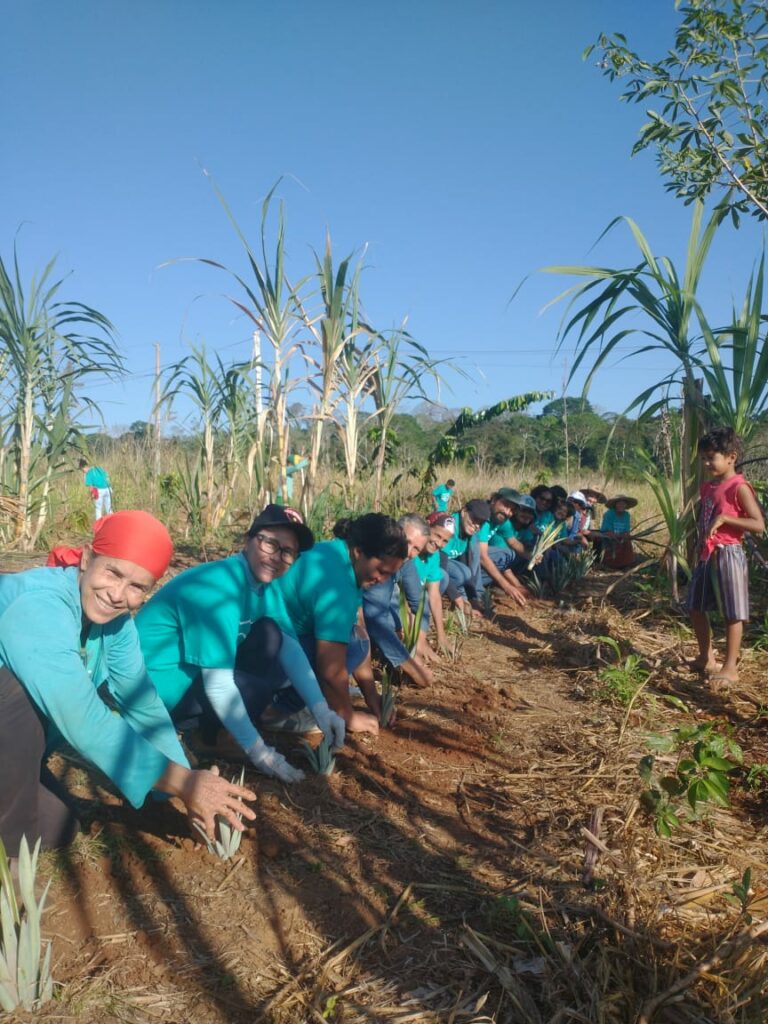
The workshop further strengthens our goal of building an “Arc of Regeneration” in the Southeast of Pará and in Maranhão. This region historically suffered – and still suffers – with the entrance of unsustainable practices, often illegal, related to crimes against human rights and against nature.
Engaged to change the local reality, 50 persons from 20 indigenous, quilombola and campesino communities registered to join this event (all registration spots!). Due to Covid safety measurements, a few participants couldn’t join, but the event had a large number of engaged participants eager to learn about regenerative agriculture!
The journey started much before the workshop’s start. For some, it started with an exciting but exhausting trip over 12 hours by bus (yep, to the neighbouring state!). For others, there were a lot of preparation steps to receive old and new friends in their home, Frei Henri Community.
Their interest on taking a part on this workshop and contributing to the larger group, regardless of the challenges faced, shows how eager they are to learn about regenerative agriculture and be active on regenerative practices. Witnessing that, I would highlight two conclusions:
(1) Communities are eager to learn more about regenerative agriculture and get ready to put this knowledge into practice
Using cultures that will first provide income with a medium/long term perspective is difficult when one’s time and energy is needed to secure their livelihood at the moment. Nevertheless, participants were moved by their environmental positive impact.
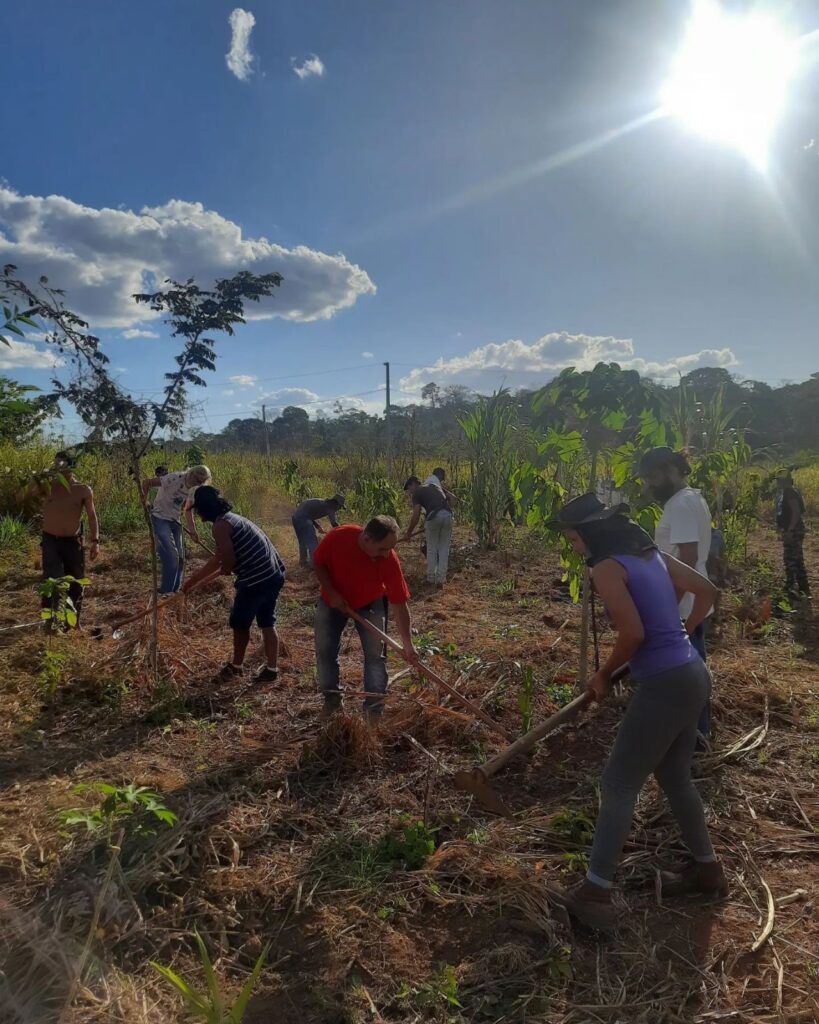
Why do I find it important to highlight this point? Because that’s what allows community-base regenerative agriculture to reach large positive impacts.
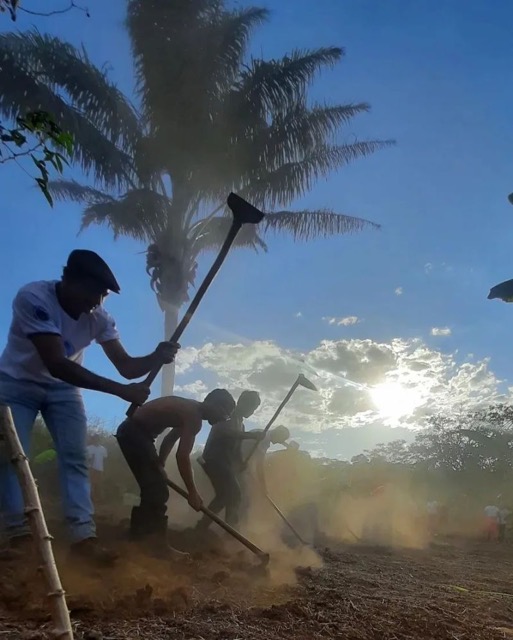
That’s the antidote for the inequalities delivered by the “business as usual” mindset, that is sadly being replicated by some actors on the regenerative agriculture scene.
Our perspective at Meli is that a fully regenerative activity needs to deliver positive impacts in different perspectives, including the social one, with empowered communities leading the work.
We don’t need to work with big landowners to reach impact. We need to engage multiple communities to reach large and fully-positive impact.
The large number of applications on the workshop shows the large interest on the topic, what leads to more curiosity and more learnings during the workshop and to more regenerative activities being put into practice after it.
But to promote a space where interests can be shown, the communities should be engaged. Here it comes, my second conclusion:
(2) Impact Networks are Crucial
Once more, the large potencial of working together is shown in an activity promoted by Meli. This topic needs a text for itself, with other observations I had during Meli’s young but intense life-experience. But this topic could not be missed here.
As a Network, our first pilar at Meli is to build a relationship of trust with the communities, understanding their context, listening to their stories and their dreams.
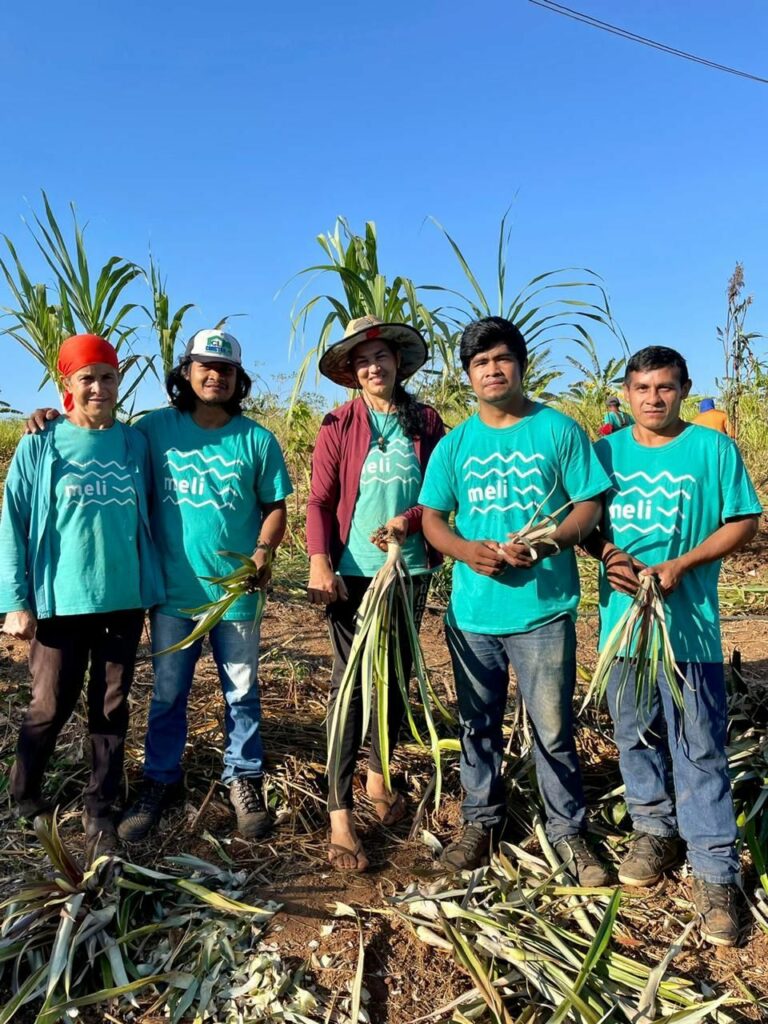
A relationship-based environment gives space for the members to start friendships with each other even via online-connections – and they can flourish even more during in-person events!
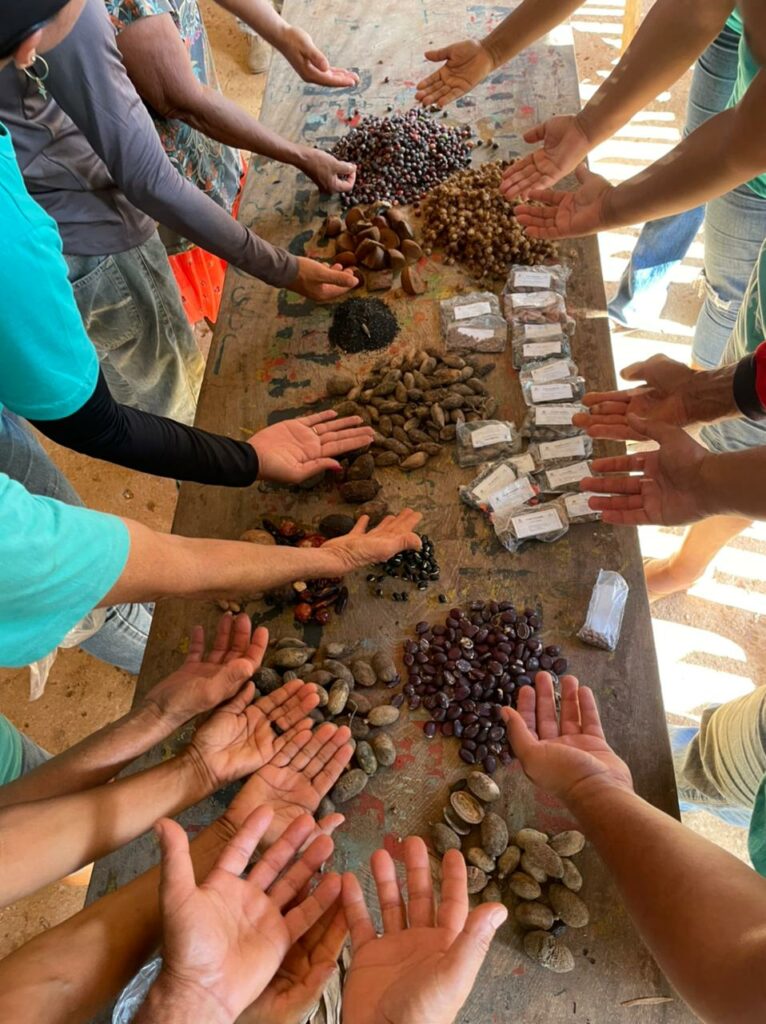
That could be particularly seen as the workshop participants collaborated to build an even more beautiful workshop!
As the participants are also the guardians of the forest, active on protecting the local biodiversity, they were able to bring seeds of the region’s native biodiversity, that were used during the workshop. This exchange was really impressive and have shown how they, together, they can potencialize each other’s work.
That bring us back to the only way possible to develop regenerative practices: being community-based!
Exemples of this exchange are already booked to continue months after the workshop. The communities are already scheduling the next visit, to share other seeds important to local regenerative agriculture when their season come!
The impacts of food production on the land very are fast on their way to reach the plates! Cooking and eating together is always the most joyful experience when one knows to be eating real food healthy for the environment, for the producer and for the consumer.
Short after the workshop, we got together online to reflect about some values that should always move our work, particularly during such activities.
Some of the values highlighted:
(1) we respect on the diversity of knowledge,
(2) we value honest discussions,
(3) we are against any prejudice,
(4) we respect food culture.
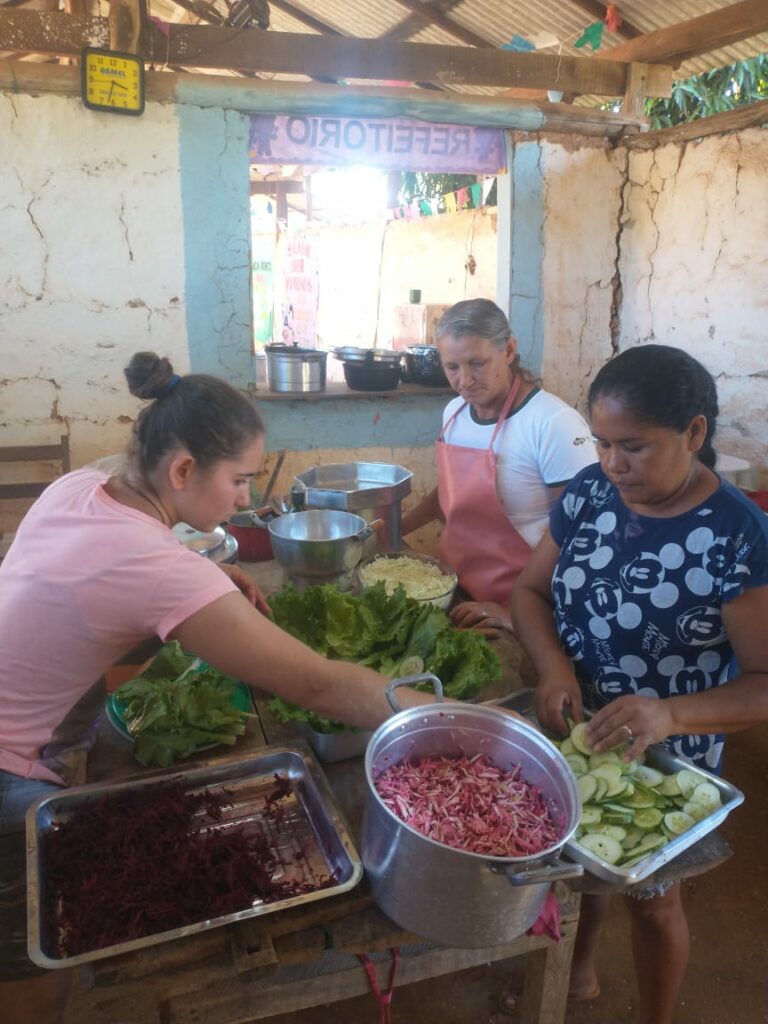
Let’s celebrate real food, (re)connect with our food culture and all that comes before it!
This activity was developed together with the teacher Luciney Cabano and the support of CPT (Pastoral Land Comission).
Your donation can have a positive impact on the world!
Subscribe to receive our Newsletter!
Find us also at Linkedin, Facebook, Twitter or Instagram
www.meli-bees.org
❤️

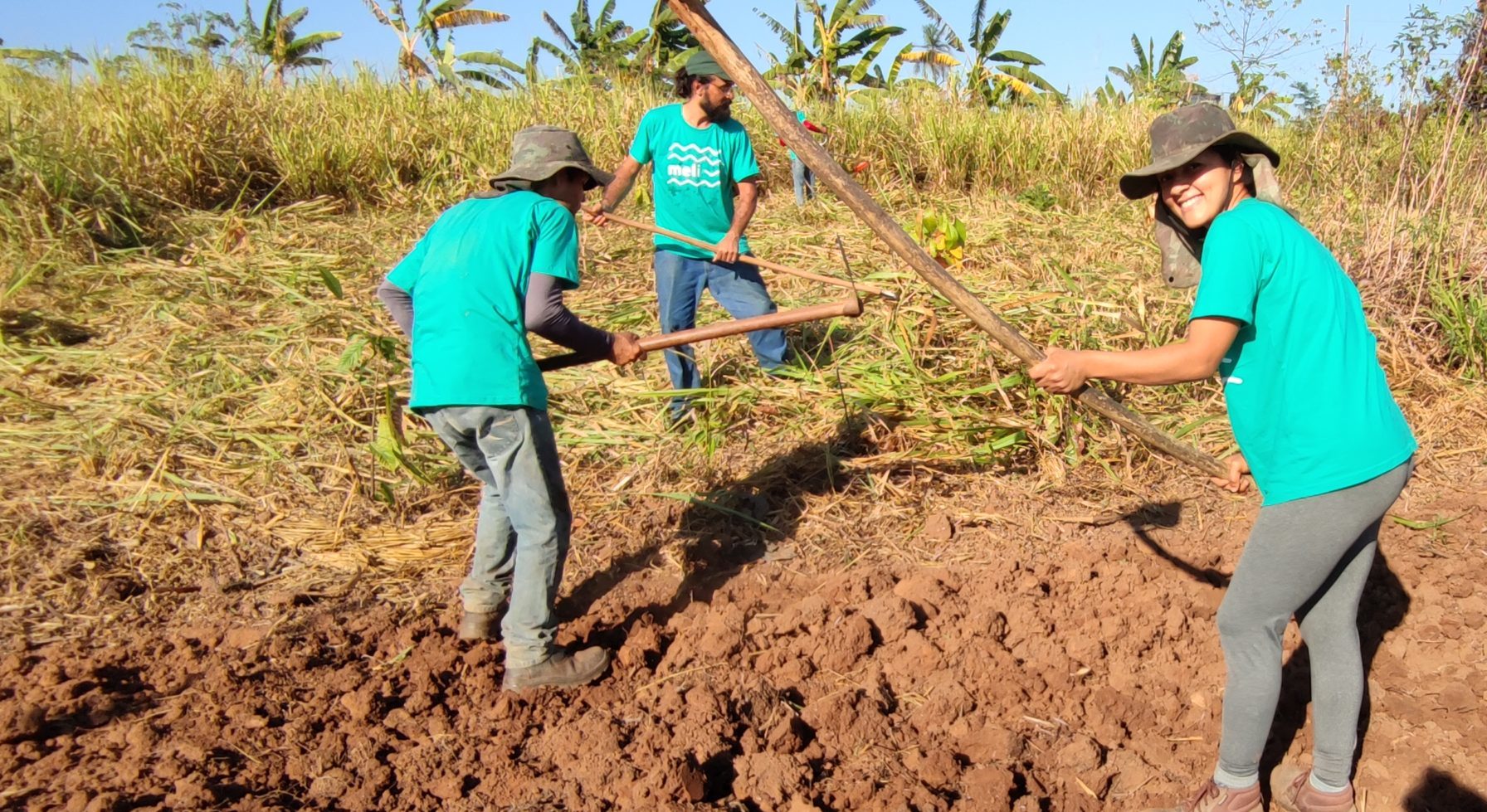
2 Replies to “Reflections on Meli’s 1st Multi-Community Workshop”